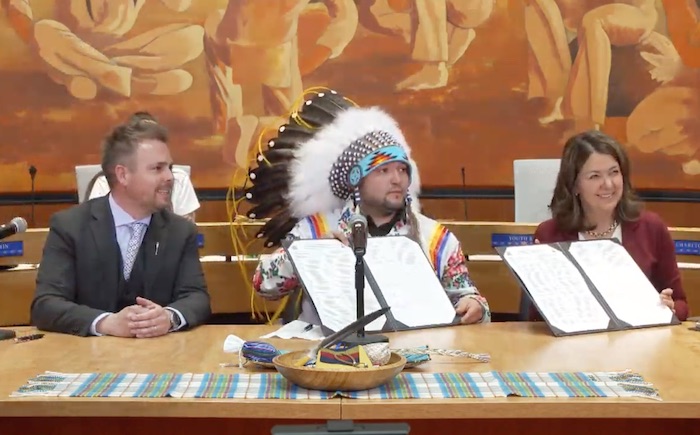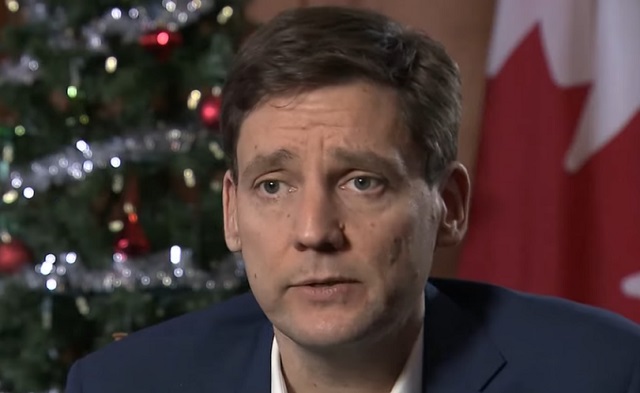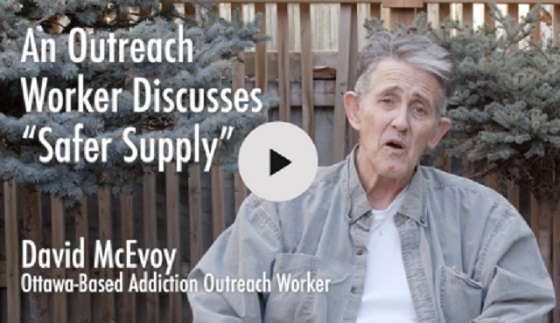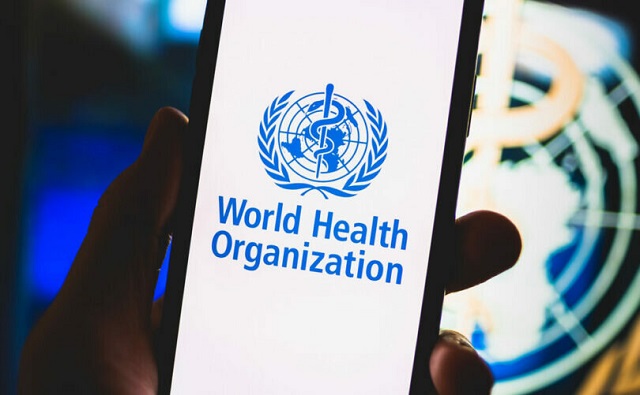Addictions
Province to open $30 million recovery centre on the Enoch Cree Nation

Building a recovery community with Enoch Cree Nation
A new recovery community on Enoch Cree Nation will help support people struggling with addiction in the Edmonton area.
Alberta’s government has signed a memorandum of understanding with Enoch Cree Nation for the development of a new recovery community on the First Nation. With an investment of up to $30 million in capital, the new 75-bed facility will provide holistic addiction treatment services for up to 300 people in the Edmonton area every year.
“This agreement with Enoch Cree Nation paves the way for a new recovery community to be built on Enoch lands, driven by the community it serves. This partnership reflects our government’s commitment to working with Indigenous communities to increase access to land-based and trauma-informed addiction treatment services that meet needs of everyone in Alberta.”
“We’re proud to partner with Enoch Cree Nation on a recovery community that will welcome Indigenous people and Albertans from the Edmonton area, supporting some of the communities most impacted by the addiction crisis. Everyone struggling with addiction deserves the opportunity to pursue recovery, and this new facility will give more people that chance.”
Working closely with Indigenous leaders is vital to removing barriers to comprehensive, culturally appropriate services in Indigenous communities and an important part of strengthening recovery-oriented systems of care across the province.
“Everyone pursuing recovery deserves our support. We are making that possible by offering important care while strengthening the ties between Indigenous culture and community. Thank you to Enoch Cree Nation and our partners for working with us on this project.”
“With this new treatment facility, we have the opportunity to turn things around and reunite our spirit. Not only would this facility help those who are struggling with addiction or mental health issues, it would benefit our entire Nation.”
The construction of a recovery community on Enoch Cree Nation stems from the work of the Edmonton Public Safety and Community Response Task Force. The Edmonton and Calgary Public Safety and Community Response Task Forces are responsible for implementing $187 million in provincial funding to further build out a recovery-oriented system of addiction and mental health care. The initiatives being implemented are part of a fair, firm and compassionate approach to keeping communities safe while treating addiction and mental health as health care issues.
“Partnering with Enoch Cree Nation is an important step forward in ensuring that everyone can access the right care to support their recovery from addiction. The Enoch recovery community will not only increase the number of addiction treatment beds in the Edmonton region, it will be the start of a new path – and a new life – for hundreds of people every year.”
“I’m very pleased that our government is making this important investment in addiction treatment. This new treatment facility will provide the supports needed for anyone seeking recovery from addiction. Together, with the people of Enoch, we can improve the lives of so many.”
Alberta’s government has also committed $75 million in capital funding for the construction of three new recovery communities to be located in Grande Prairie, and the Central Zone and North Zone. Each recovery community will establish up to 75 new long-term residential treatment beds, which will each help up to 300 people every year. This brings the total number of recovery communities planned or underway in Alberta to nine.
Budget 2023 secures Alberta’s future by transforming the health care system to meet people’s needs, supporting Albertans with the high cost of living, keeping our communities safe and driving the economy with more jobs, quality education and continued diversification.
Quick facts
- Recovery communities are a form of long-term residential treatment for substance use disorders used in more than 65 countries around the world.
- Treatment at publicly funded recovery communities is free for all Albertans.
- Budget 2023 provides up to $30 million in capital funding for the construction of a recovery community in the Edmonton area.
- Construction of the Enoch recovery community is expected to begin in early 2024.
- Enoch Cree Nation is the second First Nation in Alberta to partner with Alberta’s government to build a recovery community. Blood Tribe First Nation was the first.
- A total of nine recovery communities are planned or underway in Alberta: Red Deer, Lethbridge, Gunn, Blood Tribe, Enoch, Calgary, Grande Prairie, Central Zone and North Zone.
- Albertans struggling with opioid addiction can contact the Virtual Opioid Dependency Program (VODP) by calling 1-844-383-7688, seven days a week, from 8 a.m. to 8 p.m. daily. VODP provides same-day access to addiction medicine specialists. There is no wait list.
Addictions
British Columbia to re-criminalize hard drug use in public after massive policy failure

From LifeSiteNews
British Columbia premier David Eby announced that his province plans to re-criminalize hard drug use in public spaces after its decriminalization last year led to widespread social disorder.
British Columbia is asking the Trudeau government to roll back its drug decriminalization program after increased violence and continued overdoses.
On April 26, New Democratic Party (NDP) premier of British Columbia David Eby announced that he is working with Prime Minster Justin Trudeau’s federal government to re-criminalize drug use in public spaces, including inside hospitals, on transit, and in parks. British Columbia, under permission from the Trudeau government, had decriminalized such behavior in 2023.
“Keeping people safe is our highest priority,” Eby explained in a press release. “While we are caring and compassionate for those struggling with addiction, we do not accept street disorder that makes communities feel unsafe.”
“We’re taking action to make sure police have the tools they need to ensure safe and comfortable communities for everyone as we expand treatment options so people can stay alive and get better,” he continued.
Under the new regulations, police would be given the power to prevent drug use in all public places, including hospitals, restaurants, transit, parks and beaches.
However, drug use would remain legal at “a private residence or place where someone is legally sheltering, or at overdose prevention sites and drug checking locations.”
Eby’s concerns over drug use were echoed by Minister of Public Safety and Solicitor General Mike Farnworth who said, “Our communities are facing big challenges. People are dying from deadly street drugs, and we see the issues with public use and disorder on our streets.”
“As we continue to go after the gangs and organized criminals who are making and trafficking toxic drugs, we’re taking action now to make it illegal to use drugs in public spaces, and to expand access to treatment to help people who need it most,” he promised.
Beginning in early 2023, Trudeau’s federal policy, in effect, decriminalized hard drugs on a trial-run basis in British Columbia.
Under the policy, the federal government began allowing people within the province to possess up to 2.5 grams of hard drugs without criminal penalty, but selling drugs remained a crime.
While British Columbia has not yet indicated it plans to re-criminalize possession, its decision to clamp down on public drug use presents a major departure from its previous tactics of continually liberalizing its attitude toward narcotic use.
Since being implemented, the province’s drug policy has been widely criticized, especially after it was found that the province broke three different drug-related overdose records in the first month the new law was in effect.
The effects of decriminalizing hard drugs in various parts of Canada has been exposed in Aaron Gunn’s recent documentary, Canada is Dying, and in U.K. Telegraph journalist Steven Edginton’s mini-documentary, Canada’s Woke Nightmare: A Warning to the West.
Gunn says he documents the “general societal chaos and explosion of drug use in every major Canadian city.”
“Overdose deaths are up 1,000 percent in the last 10 years,” he said in his film, adding that “[e]very day in Vancouver four people are randomly attacked.”
Addictions
Must Watch: Addiction worker estimates 90% of “safer supply” drugs resold on black market

“It’s just… it’s created more addicts,” says David McEvoy, an Ottawa-based outreach worker who specializes in overdose prevention.
|
|
“Safer supply” refers to the practice of prescribing free recreational drugs as an alternative to potentially-tainted street substances. While advocates claim that this practice saves lives, David McEvoy, an Ottawa-based addiction outreach worker, says that approximately 90% of clients are reselling their taxpayer-funded drugs on the street, leading to new addictions and relapses.
His testimony is consistent with the testimony of dozens of addiction experts, former drug users, and youth. You can read a summary of his interview in the National Post here.
Our content is always free – but if you want to help us commission more high-quality journalism, consider getting a voluntary paid subscription.
-

 Uncategorized1 day ago
Uncategorized1 day agoMaking Alberta a geothermal energy leader
-

 COVID-192 days ago
COVID-192 days agoPeckford: Hallelujah! Supreme Court of Canada to hear Newfoundland and Labrador charter case
-

 Alberta1 day ago
Alberta1 day agoThree Calgary massage parlours linked to human trafficking investigation
-

 Alberta1 day ago
Alberta1 day agoAlberta’s vision for passenger rail
-

 Alberta2 days ago
Alberta2 days agoCanada’s postal service refuses to help with Trudeau’s gun ban buyback program: report
-

 COVID-191 day ago
COVID-191 day agoStates move to oppose WHO’s ‘pandemic treaty,’ assert states’ rights
-

 Business1 day ago
Business1 day agoParliamentary Budget Officer forecasts bigger deficits for years to come
-

 Addictions1 day ago
Addictions1 day agoMust Watch: Addiction worker estimates 90% of “safer supply” drugs resold on black market








